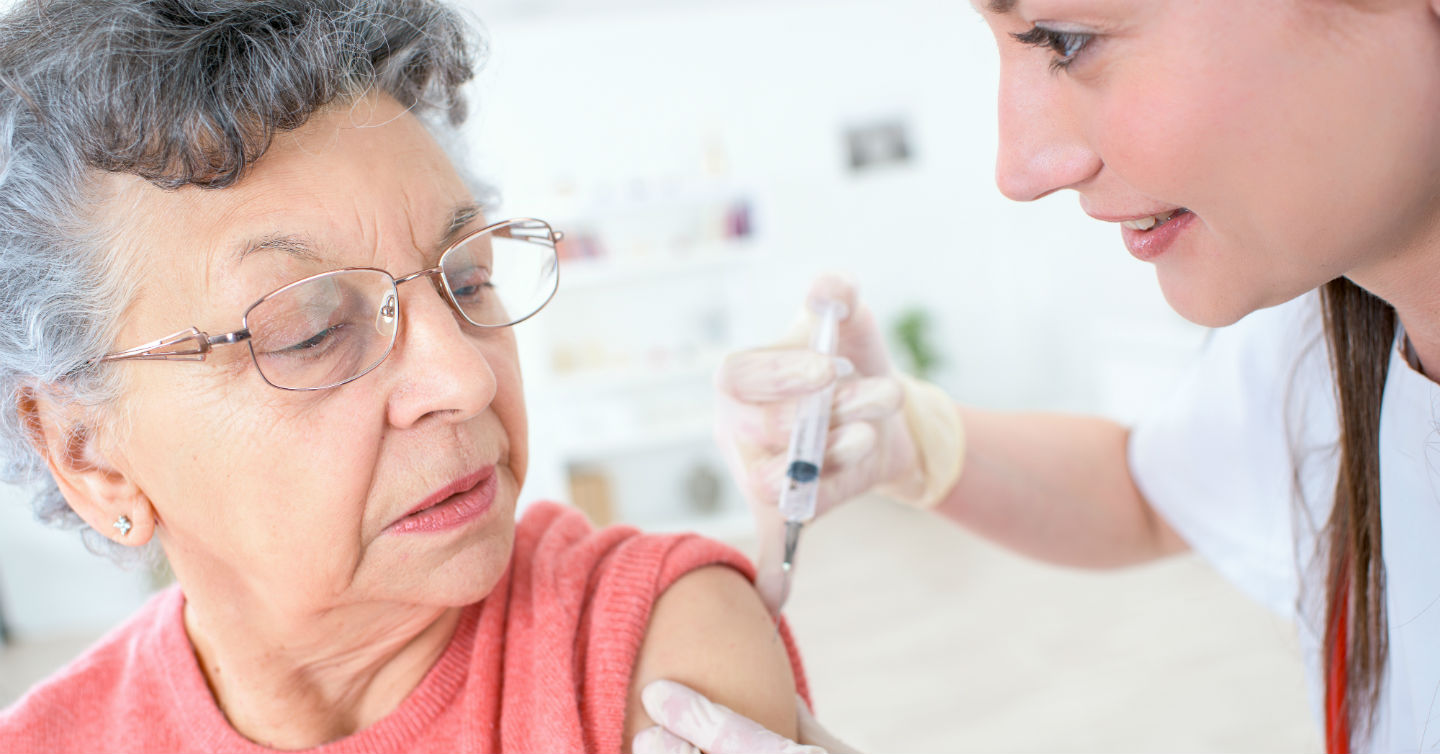Everything to Know About Shingles and Your Health Plan

Does Medicare Cover Shingrix and the Shingles Vaccine?
By Kristen Roloff, quality care coordinator at Network Health
Originally published on 10/27/2020 at 8:00 a.m.
As most of us age, we start to become familiar with the names of common medicines and immunizations to help keep us living our best and healthiest lives. One of these immunizations has been getting a lot of attention for its ability to prevent a serious health issue. We’re talking about shingles and the vaccine to prevent it, called Shingrix.
What is shingles and how is it related to chickenpox?
Shingles is a reactivation of the varicella-zoster virus in the body. This virus is responsible for chickenpox. As you age, the risk of developing this painful rash-like condition increases, leading many people to seek preventive immunization from its potentially severe effects.
As far as symptoms go, shingles causes a painful rash that may appear as a strip of blisters on the trunk of the body. The blisters continue to form over three to five days, eventually drying and forming a scab-like layer.
How long does it take to heal from shingles?
Healing can take between two to four weeks and shingles can leave scars and permanent pigmentation changes in affected areas. Pain can persist even after the rash is gone.
Can I get shingles if I’ve had chickenpox already?
Yes. After you have chickenpox, the virus stays in your body. It might go many decades before resurfacing or never come back at all. As you get older, the chance of the virus reappearing as shingles becomes more significant and can also lead to other negative health effects.
It is rare but possible to get shingles more than once.
Is shingles contagious?
No. Shingles is not contagious. You can, oddly enough, catch chickenpox from someone with shingles. If you've never had chickenpox or the chickenpox vaccine, try to stay away from anyone who has shingles.
If you do have shingles, stay away from anyone who has not had chickenpox or the chickenpox vaccine and anyone who might have a weakened immune system.
It isn't known what reactivates the virus. If you think you may have shingles, contact your personal doctor as soon as possible.
What treatment options are there for shingles?
There is no cure for shingles. Antiviral medicines may help shorten the duration and make it less severe. They may also help prevent pain. The available medicines your personal doctor may prescribe are most effective if you can take them within three days of the rash appearing.
Pain relievers may also help with the pain.
Topical relief recommendations include a cool washcloth or dabbing calamine lotion on affected areas. Additionally, oatmeal baths may help relieve some of the itching.
Does shingles have a vaccine?
Yes, the good news is a vaccine can prevent shingles. The vaccine comes with recommendations from public health officials at the Centers for Disease Control and Prevention (CDC), who recommend healthy adults, age 50 and older, receive a shingles vaccine.
What vaccines exist for shingles?
The two most commonly administered vaccines for shingles are Shingrix and Zostovax.
Shingrix: Doses and vaccine information
Shingrix is an injection, with two doses spaced two to six months apart. Shingrix is the CDC recommended vaccine for shingles prevention. This vaccine contains inactivated viruses, which makes it more tolerable for people with compromised immune systems. Receiving two doses of Shingrix provides strong protection against shingles.
Zostavax: Doses and vaccine information
Zostavax is given as a one-time injection. This vaccine is a live vaccine, which means it contains weakened viruses. This vaccine may be used under certain circumstances. Contact your personal doctor to find out which one is right for you.
Is Shingrix covered by my Medicare health plan?
Yes and no. Medicare Part A and Medicare Part B do not cover the shingles vaccine.
Coverage, however, may be available through your Medicare Advantage or Medicare Part D plan.
Medicare Part D is the portion of Medicare covering prescription drugs and typically also covers commercially available vaccines, at varying amounts.
If you haven’t met your plan’s deductible for the year, you may have to pay full price.
How do I know if my Medicare plan covers Shingrix?
To check details of your coverage, call the customer service number for your Medicare Advantage or Medicare Part D plan. This number is typically located on the back of your Medicare Advantage plan’s ID card. If you’re a Network Health Medicare Advantage member, you can call member experience at 800-378-5234 (TTY 800-947-3529), Monday–Friday from 8 a.m. to 8 p.m. From October 1 – March 31, we are available seven days a week from 8 a.m. to 8 p.m.
How much does Shingrix cost?
The amount you pay will depend on your plan coverage and where you get the vaccine. For the best cost options, you’ll likely want to choose a pharmacy in your network.
You’ll still need a doctor’s prescription for the vaccination. You’ll find most major chains and some independent pharmacies can administer the vaccine.
If you’re a Network Health Medicare Advantage member, check your Evidence of Coverage for details..
If you’re vaccinated in a doctor’s office you will likely owe an office visit copayment.
Stay healthy with preventive immunizations in 2020
At Network Health, we’re building healthy and strong Wisconsin communities. One of the best ways to stay healthy and keep your community strong is to receive vaccines like the shingles vaccine, especially if your personal doctor has identified risk factors.
For more information on the shingles vaccine and what your health plan covers, contact us today.



